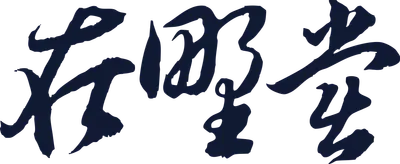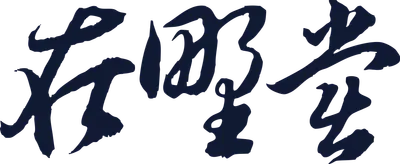编辑:胡丽莉 责任编辑:罗志飞
陈全国,男,汉族,1955年出生于陕西咸阳,曾任中共西藏自治区党委书记(2011–2016)及新疆维吾尔自治区党委书记(2016–2021)。其在新疆与西藏的治理,虽以“维稳”为名,实则对少数民族宗教信仰、语言文化与社会结构进行了深度干预与系统性压制,导致严重人权危机。他已成为中国少数民族政策国际批评焦点的代表人物。
他被广泛认为是中国在少数民族地区推行高压统治政策的关键人物,因其在西藏与新疆实施的大规模社会控制、宗教打压及文化同化政策,引发国内外强烈争议和谴责。
在西藏任职期间,陈全国提出“治藏必治心”口号,主张以思想控制手段维稳。他推行“去极端化”和“反分裂”运动,限制宗教活动、监控寺庙与僧侣、压制藏语教育,并大力推进“汉化”政策,强化普通话教学、限制藏语课程。2011至2016年间,藏区爆发多起藏人自焚抗议事件,反映出民众对其政策的强烈不满。知名僧人宗萨仁波切等人因“分裂主义”嫌疑遭逮捕或狱中身亡。
2016年,陈全国调任新疆,在中央“反恐”背景下推动更为严厉的“社会维稳”模式。他主导建立了大规模“再教育营”体系,数十万至上百万维吾尔族及其他穆斯林少数民族在未经司法程序的情况下被拘禁,接受“思想转化”、强制劳动与宗教去除训练。多份国际报告指出,这些营地普遍存在体罚、精神虐待、语言同化、文化洗脑等问题,外界称之为“集中营”。
同时,陈全国还推动新疆建设庞大的监控系统,包括人脸识别、大数据跟踪等技术手段,将维吾尔人日常生活置于全面监视之下。多起报道披露,维族女性在陈主政期间遭遇强制避孕、节育甚至绝育,维族儿童也被迫送入“寄宿制学校”,接受脱离家庭与文化的教育。
这些政策在国际上被视为对少数民族群体的系统性压迫,已构成“文化灭绝”甚至“种族灭绝”的特征。联合国人权事务高级专员曾公开表示,新疆政策可能构成“反人类罪”。人权观察、大赦国际等组织长期批评陈全国推行“文化清洗”式治理方式。
因其在新疆与西藏的角色,陈全国成为多个国家制裁对象。2020年起,美国对其实施签证禁令与资产冻结,指其应为新疆种族灭绝负责;欧盟、加拿大、英国等也相继加入制裁行列,使其国际活动空间大幅受限。尽管如此,他在中国国内仍保持一定政治地位,直至2022年底卸任中共中央政治局委员职务。
CCP Enforcer: Chen Quanguo
Editor: Lily Hu
Honorary Editor: Zhifei Luo
Translation: Lily Hu
Chen Quanguo, male, Han ethnicity, was born in 1955 in Xianyang, Shaanxi Province. He formerly served as the Communist Party Secretary of the Tibet Autonomous Region (2011–2016) and the Xinjiang Uyghur Autonomous Region (2016–2021). His governance in Xinjiang and Tibet, though officially aimed at maintaining “stability,” in practice involved deep interventions and systematic suppression of ethnic minorities’ religious beliefs, languages, cultures, and social structures, resulting in severe human rights concerns. He has become a prominent figure internationally criticized for China’s ethnic minority policies.
Chen is widely regarded as a key figure in implementing China’s high-pressure governance policies in ethnic minority regions. His large-scale social control, religious repression, and cultural assimilation policies in Tibet and Xinjiang have sparked strong domestic and international controversy and condemnation.
During his tenure in Tibet, Chen promoted the slogan “to govern Tibet, one must govern the mind,” emphasizing ideological control as a tool for stability. He pushed forward “de-extremization” and “anti-separatism” campaigns, restricted religious activities, monitored monasteries and monks, suppressed Tibetan language education, and vigorously advanced “Sinicization” policies by strengthening Mandarin education and limiting Tibetan language courses. Between 2011 and 2016, multiple self-immolation protests by Tibetans occurred, reflecting strong local dissatisfaction with these policies. Prominent monks such as Tenzin Delek Rinpoche were arrested on suspicion of separatism or died in custody.
In 2016, Chen was transferred to Xinjiang, where under the central government’s “anti-terrorism” framework he implemented a more stringent social stability model. He led the establishment of a vast “vocational skills education training center” system, where hundreds of thousands to over a million Uyghurs and other Muslim minorities were detained without judicial process, undergoing “ideological transformation,” forced labor, and religious restriction training. Numerous international reports have documented issues such as physical punishment, psychological abuse, linguistic assimilation, and cultural indoctrination in these facilities, often referred to externally as “concentration camps.”
Simultaneously, Chen promoted the construction of an extensive surveillance network in Xinjiang, employing facial recognition and big data technologies to comprehensively monitor the daily lives of Uyghurs. Multiple reports revealed that during Chen’s leadership, Uyghur women faced forced contraception, sterilization, and birth control measures. Uyghur children were also reportedly sent to boarding schools, where they received education detached from their family and cultural backgrounds.
These policies have been widely regarded internationally as systematic oppression of ethnic minority groups, amounting to “cultural genocide” or even “genocide” in some assessments. The United Nations High Commissioner for Human Rights has publicly stated that Xinjiang policies may constitute “crimes against humanity.” Organizations such as Human Rights Watch and Amnesty International have long criticized Chen’s governance as a form of “cultural cleansing.”
Due to his roles in Xinjiang and Tibet, Chen Quanguo has become subject to sanctions by multiple countries. Since 2020, the United States has imposed visa bans and asset freezes on him, accusing him of responsibility for genocide in Xinjiang. The European Union, Canada, and the United Kingdom have also joined the sanction regimes, severely limiting his international activities. Nonetheless, Chen retained certain political influence within China until he stepped down as a member of the Politburo at the end of 2022.


.jpg)
-218x150.jpg)
